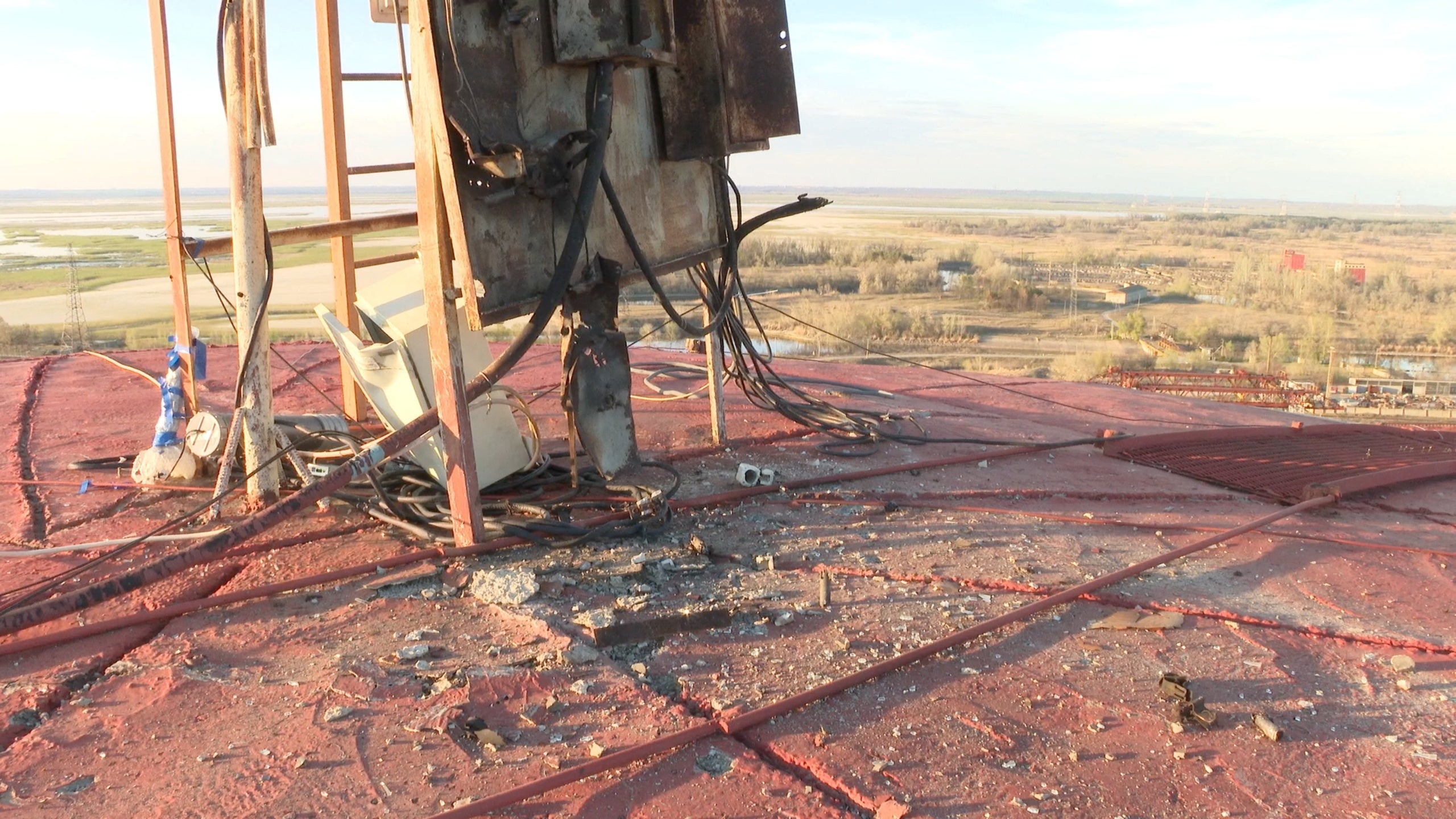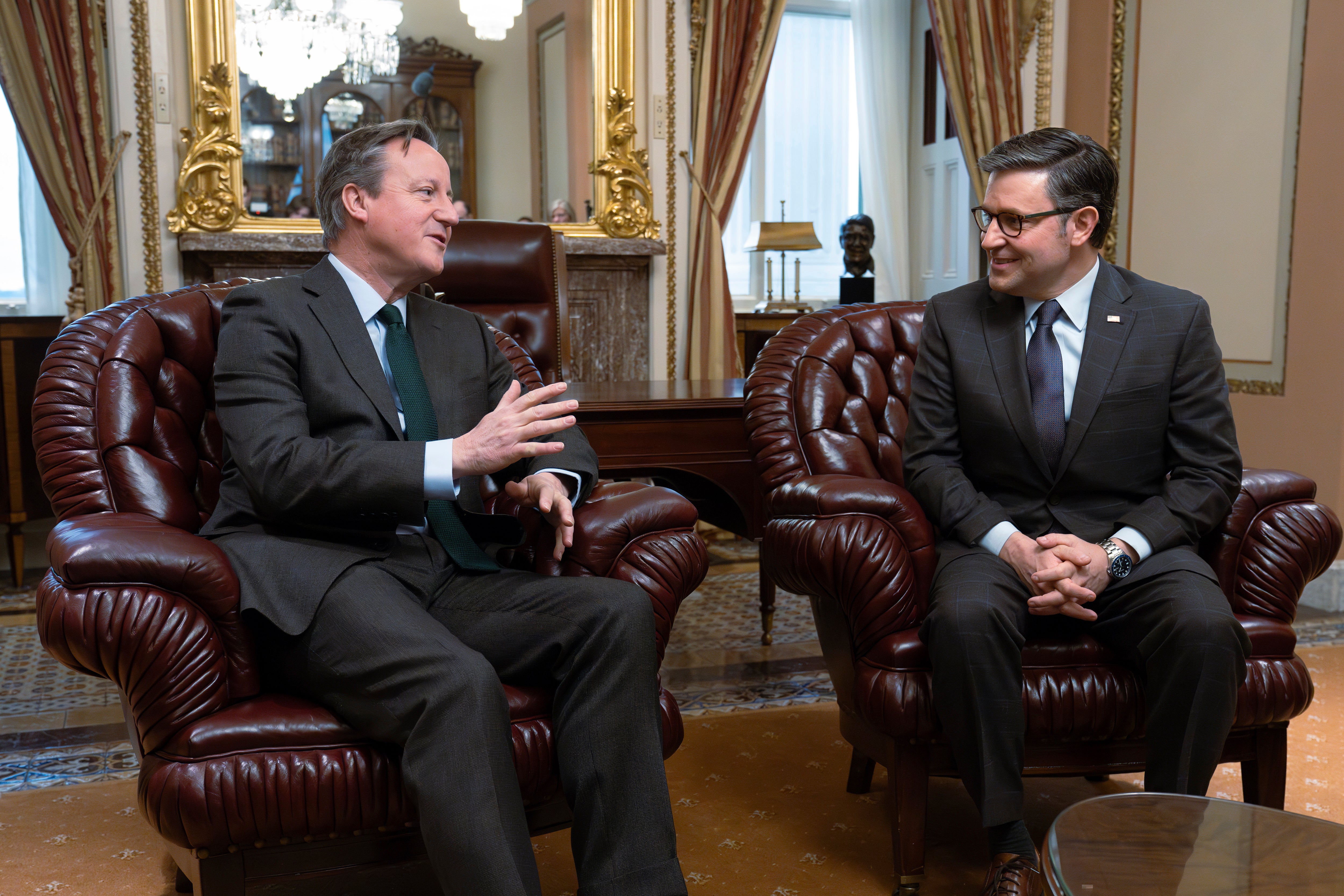UN warns of ‘reckless’ Zaporizhzhia nuclear plant drone attacks
Ukrainian officials say Moscow is behind the ‘provocation’ – while the Kremlin has tried to blame Kyiv

The United Nations has urged restraint from Russia and Ukraine after numerous drones were shot down over Europe’s largest nuclear power plant – as the organisation warned that such activity around the plant risked causing a “major nuclear accident”.
Russia claimed on Monday that it had shot down a Ukrainian drone over the roof of reactor 6 at the Zaporizhzhia nuclear power plant (NPP), less than 24 hours after the UN nuclear watchdog, the International Atomic Energy Agency (IAEA), confirmed three earlier attacks on Sunday.
“Today, a kamikaze drone was shot down over the plant. It fell on the roof of unit 6,” the Russia-controlled plant posted beneath a picture of reactor 6, which is currently shut down.
The Zaporizhzhia NPP has six Soviet-designed VVER-1000 V-320 water-cooled and water-moderated reactors containing Uranium 235. They were all built in the 1980s, though the sixth only came online in the mid-1990s after the collapse of the Soviet Union. All but one of the reactors are in cold shutdown. Reactor unit 4 is in “hot shutdown”, mainly for heating purposes.
Ukraine denied both drone attacks, claiming that Russia was carrying out imitation strikes designed to implicate Kyiv. Ukrainian intelligence agency spokesperson Andriy Usov said the drone strikes were carried out by Russia and were being used to accuse Ukraine of terrorism. He said this was a “well-known criminal practice of the invaders”.
An official at Energoatom, Ukraine’s atomic energy company, blamed Russia for the attacks, saying they were “a provocation” orchestrated to malign Ukraine. The official spoke on condition of anonymity as he was not authorised to speak on the record.
The IAEA, which has workers present at the site, declined to attribute blame for the attacks, choosing instead to reiterate the risk of a disaster at the plant.
“Russian troops engaged what appeared to be an approaching drone,” the agency said after the strikes on Sunday. “This was followed by an explosion near the reactor building.”
They said they had not observed any structural damage and that the containment structures of the nuclear reactors are made of steel-lined reinforced concrete, designed to withstand the impact of a small plane crash.

But agency chief Rafael Mariano Grossi said the attack was nonetheless “reckless”.
“This is a major escalation of the nuclear safety and security dangers facing the Zaporizhzhia nuclear power plant,” he said. “Such reckless attacks significantly increase the risk of a major nuclear accident and must cease immediately.”
Mr Grossi has previously said that fighting a war around a nuclear plant has put nuclear safety and security in “constant jeopardy”.
Located on the front line in the city of Enerhodar, the plant was wrested from Ukrainian control shortly after Vladimir Putin launched his full-scale invasion of Ukraine. Special Russian military units guard the facility and a unit of Russia’s state nuclear company, Rosatom, runs the plant. It is just 300 miles from the site of the world’s worst nuclear accident, the 1986 Chernobyl disaster.
Russian foreign ministry spokesperson Maria Zakharova urged world leaders to condemn what she called an act of “nuclear terrorism”, using propagandistic language often employed by the Kremlin to describe Ukrainian activity.
It came as Ukrainian officials reported a spate of Russian attacks across the wider Zaporizhzhia region, around 25 per cent of which is outside of the Kremlin’s control.
“Three people were killed and three people were wounded in the Pologovsky district,” wrote local governor Ivan Fedorov on the Telegram messenger service, referring to an area of the region some 100 miles from the nuclear power plant.
He later wrote that another six people had been injured during a strike on an unnamed industrial facility elsewhere in Zaporizhzhia.

Ukrainian president Volodymyr Zelensky, meanwhile, accused Russia of committing “heinous crimes” with its relentless bombardment of the northeastern border city of Kharkiv.
Ukraine’s second-largest city, less than 20 miles from the Russian border, has been heavily bombed by Kremlin forces over the past month. Officials have reported that fighter jets have even dropped guided aerial bombs, nicknamed “building-destroyers”.
“Kharkiv. Every day and night, the city is subjected to heinous Russian attacks,” Mr Zelensky wrote on Twitter/X. “We are making every effort to provide better protection for it.”
He added: “Our partners can assist with air defence and exerting pressure on Russia. And I thank everyone who is already assisting.”
Mr Zelensky was issuing the latest in his now daily plea for more air defences as British foreign secretary David Cameron announced that he will travel to Washington this week to urge the US to finally push through a $60bn (£47.5bn) military package for Kyiv. The bill has been trapped for seven months in the lower chamber of Congress, the House of Representatives, where it has fallen victim to Donald Trump supporters determined to secure more funds for shoring up the southern border with Mexico.
Lord Cameron will meet with Mike Johnson, the Republican speaker of the House, who has blocked a vote on passing the aid bill, in an effort to convince him to change his mind.
“Speaker Johnson can make it happen in Congress,” Lord Cameron said in a video posted on Twitter/X. “I’m going to go and see him next week and say, ‘Ukraine needs that money. It is American security, it’s European security, it’s Britain’s security that’s on the line in Ukraine, and they need our help.”
Join our commenting forum
Join thought-provoking conversations, follow other Independent readers and see their replies
Comments
Bookmark popover
Removed from bookmarks